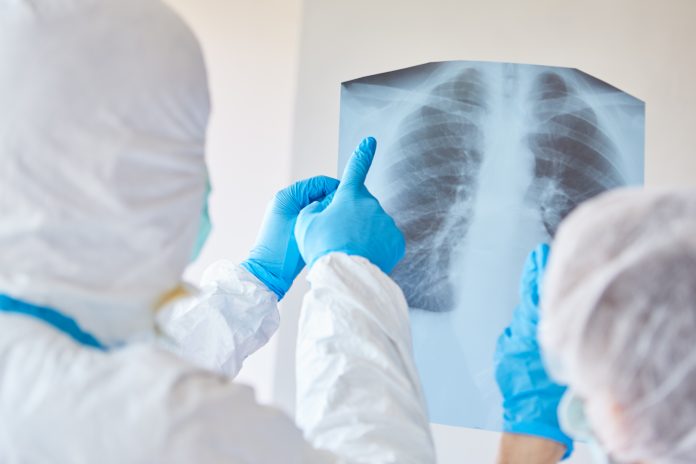Researchers have developed a DNA test to rapidly identify pneumonia in COVID-19 patients, aiding faster treatment
A team of scientists and doctors at the University of Cambridge and Cambridge University Hospitals NHS Foundation Trust, led by Professor Gordon Dougan, Dr Vilas Navapurkar and Dr Andrew Conway Morris, have developed a simple DNA test to quickly identify ‘ventilator-associated pneumonia’ in COVID-19 patients allowing important targeted antibiotic treatment.
Ventilator-associated pneumonia happens when a patient has to be put on mechanical ventilation to keep them alive, making them susceptible to further infections from antibiotic-resistant bacteria and fungi that they may catch while in hospital.
The test, developed at Addenbrooke’s hospital in collaboration with Public Health England, uses multiple polymerase chain reaction (PCR) to detect the DNA of the bacteria and can be done in around four hours rather than days. It is being rolled out at Cambridge University Hospitals.
Co-author Dr Andrew Conway Morris from Cambridge’s Department of Medicine and an intensive care consultant, “Early on in the pandemic we noticed that COVID-19 patients appeared to be particularly at risk of developing secondary pneumonia, and started using a rapid diagnostic test that we had developed for just such a situation. Using this test, we found that patients with COVID-19 were twice as likely to develop secondary pneumonia as other patients in the same intensive care unit.”
“Often, patients have already started to receive antobiotics before the bacteria have had time to grow in the lab. This means that results from cultures are often negative, whereas PCR doesn’t need viable bacteria to detect – making this a more accurate test.”
The test – which was developed with Dr Martin Curran, a specialist in PCR diagnostics from Public Health England’s Cambridge laboratory – runs multiple PCR reactions and can pick up 52 different pathogens. It can also test for antibiotic resistance.
“We found that although patients with COVID-19 were more likely to develop secondary pneumonia, the bacteria that caused these infections were similar to those in ICU patients without COVID-19,” said lead author Mailis Maes, also from the Department of Medicine. “This means that standard antibiotic protocols can be applied to COVID-19 patients.”
The results are reported in the journal Critical Care.











